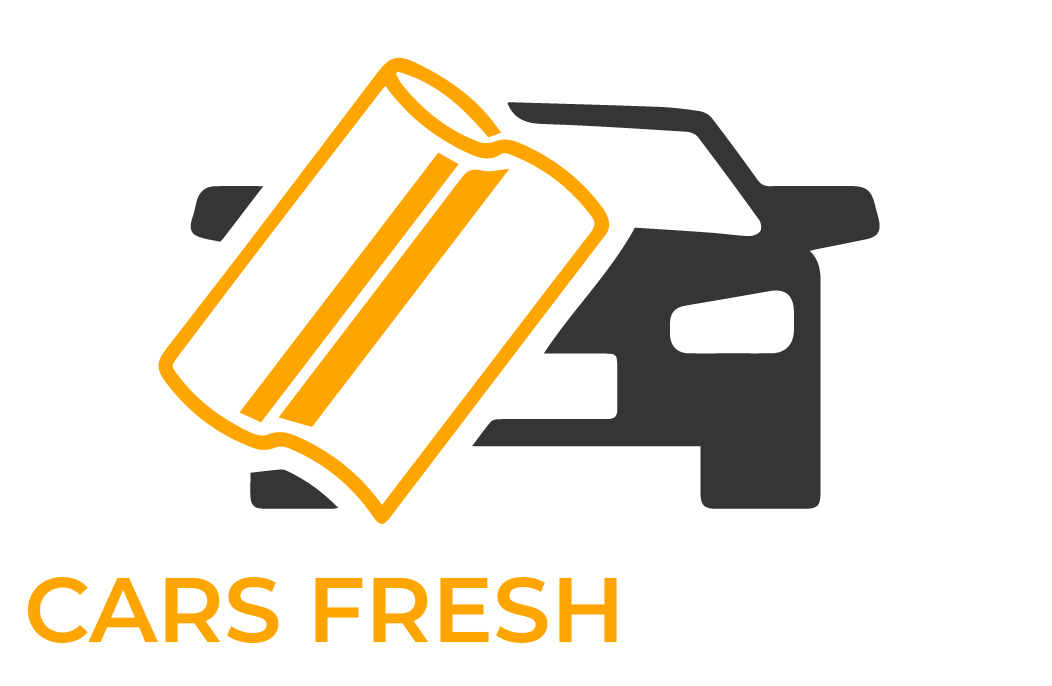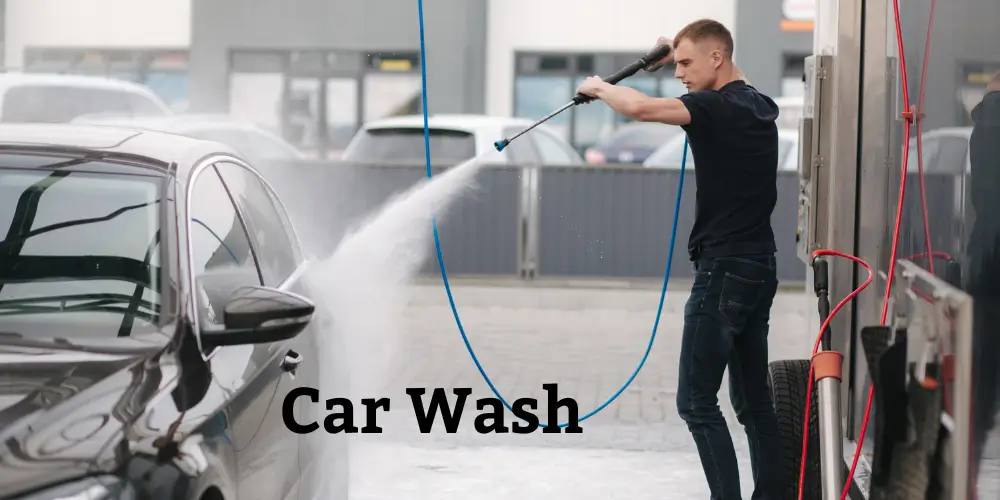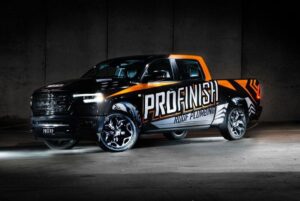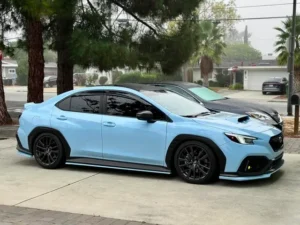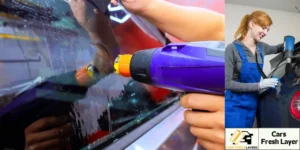About 8 million vehicles are washed daily in the U.S., showing a strong preference for professional services over DIY methods.
If you ever feel like finding a reliable car wash is more of a task than it should be? With long waits, inconsistent quality, and worries about brushes scratching your paint. Getting a simple car wash type can be surprisingly frustrating.
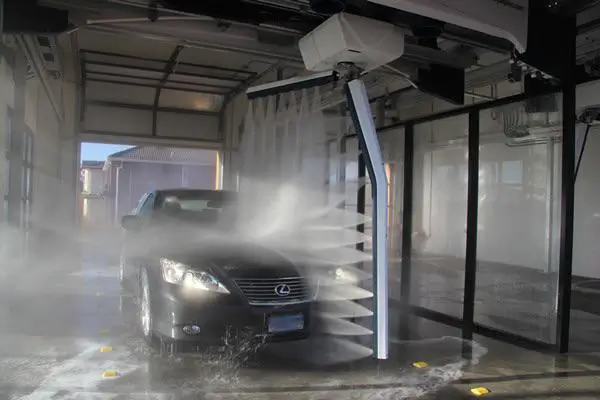
If you’re eco-conscious, there’s concern about the water and harsh chemicals used. Or maybe you tried it at home and ended up flooded, surrounded by half-cleaned spots.
Imagine this:
You’re in a rush, needing your car cleaned before an important meeting or family event. You want a service that gets the job done but does it well, without costing much or taking up half your day. You deserve transparent pricing and flexible payment options.
Let’s be honest; who carries cash anymore?

Nowadays, many terms are used in the car washing industry. You pull in, only to find a long line ahead, or discover your favorite wash option isn’t available. Maybe you find many car wash types.
The good news? There are ways to make car washing a smoother, better experience that fits your schedule, budget, and values.
Table of Contents
ToggleCar Wash Industry Growth & Market Size
The car wash industry is seeing significant growth and change. It’s driven by changing consumer preferences and technological progress.
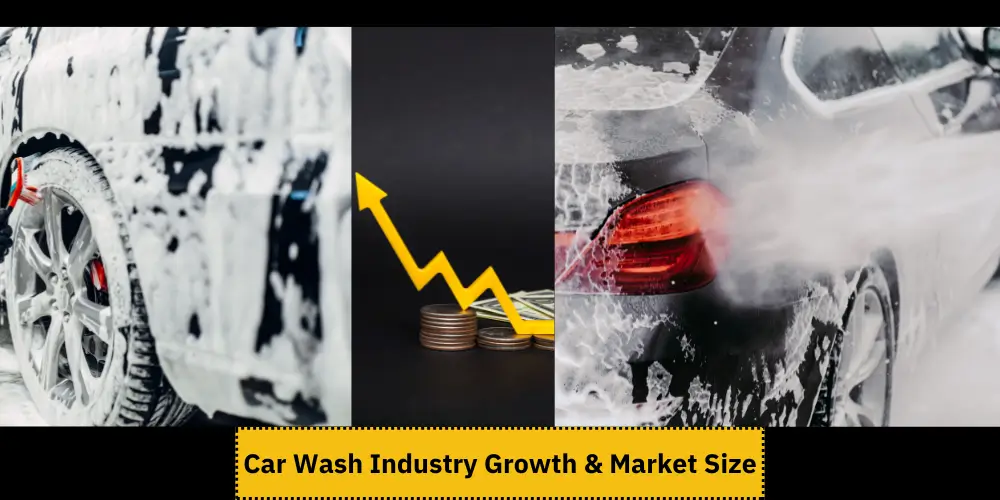
Here are some key statistics and insights about the current state of car washes:
The U.S. car wash market was estimated at approximately $15.21 billion in 2022 and is projected to grow at a compound annual growth rate (CAGR) of 5.8% from 2023 to 2030.
Around 72% of drivers in the USA use wash car services, showing a strong preference for professional washing over DIY methods.
Membership models like unlimited wash subscriptions are gaining popularity. They let customers wash their cars multiple times a month for a fixed fee, which often boosts operator profitability.
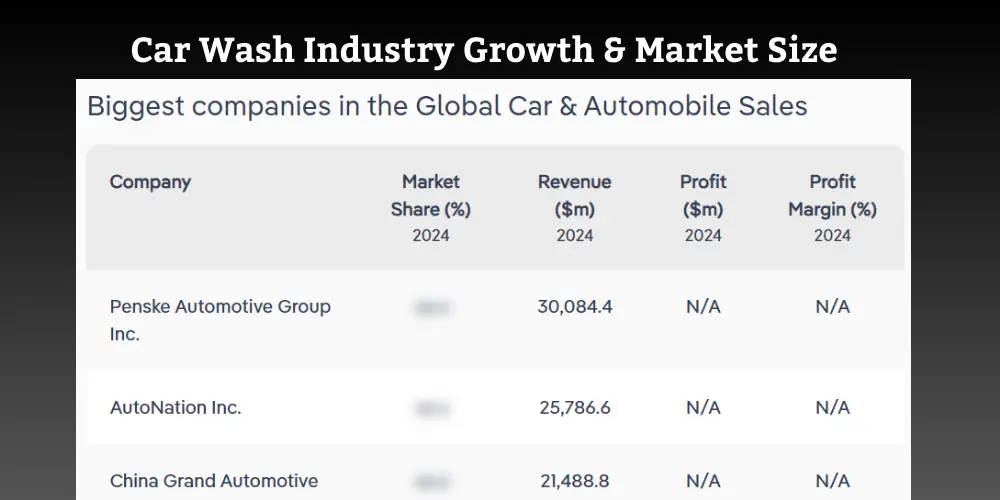
The global automotive sales market is projected to reach approximately $4.4 trillion by 2024 adding a profit of 2.3%. It showcases the vast scale of the industry and the revenue potential for high-performing locations.
6 Popular Car Wash Types Systems
Car washes come in various types of car washing, each designed to attract different customers.
Here’s a detailed overview of the primary types of car washes available today:
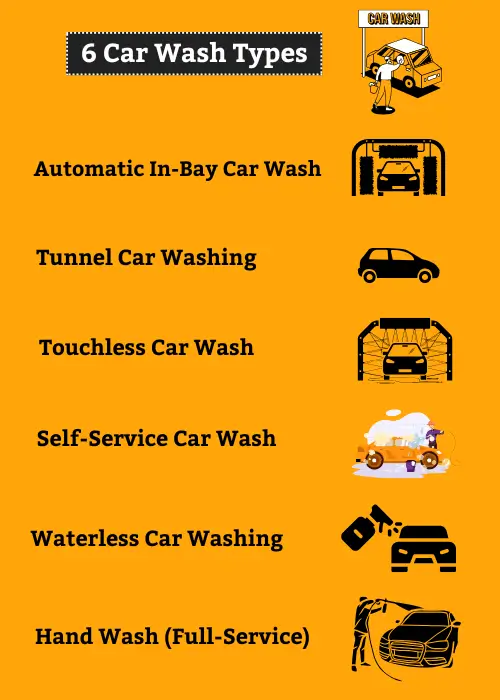
1- Machinery (Hand Wash Vs Automatic)
When choosing between a hand car wash and an automatic one, it is important to weigh the pros and cons of each.
Both offer unique benefits and drawbacks that may affect your decision, depending on your needs and time limitations.
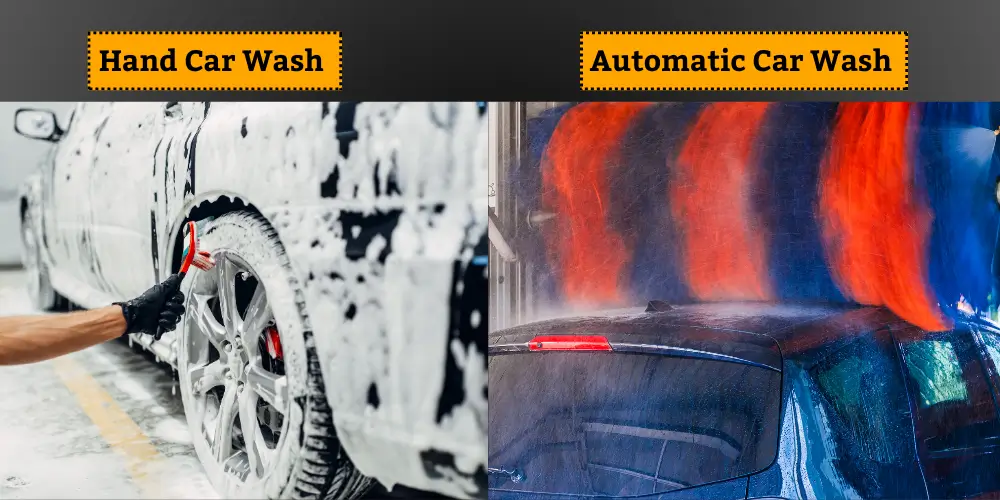
What is Car Hand Wash?
Car hand washing allows for a more auto-detailed clean, reaching areas that machines may miss. This method is particularly effective for stubborn stains and dirt that require manual attention.
You can customize the cleaning process based on your vehicle’s needs, using different products for various surfaces such as wheels and paint, and adjusting the pressure as necessary.
Hand washing can be more water-efficient, giving you control over usage and allowing for eco-friendly product choices.
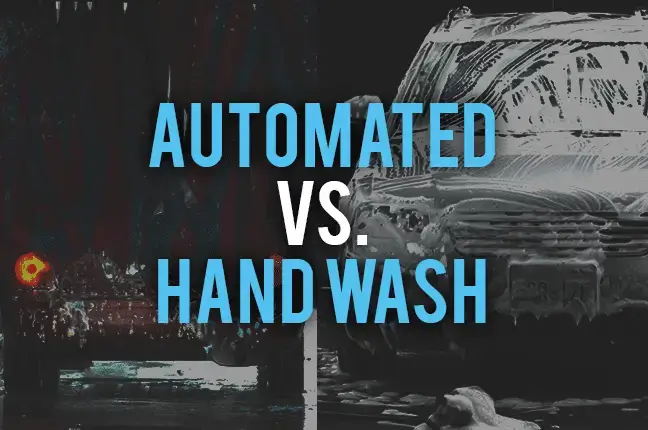
What is Automatic Car Washing?
Automatic car washes are fast and effective, usually finishing in just a few minutes. This is perfect for those with busy schedules.
Generally, automatic washes are cheaper than hiring a professional for hand washing. They benefit from economies of scale due to high-volume operations.
Many modern automatic washes recycle water and use less overall compared to traditional hand-washing methods.
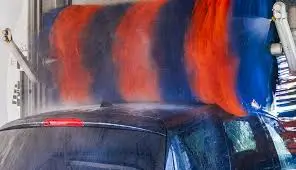
Disadvantages
Here’s a table summarizing the cons of both hand washing and automatic car washing:
| Hand Washing Cons | Automatic Washing Cons |
|---|---|
| Requires significant time investment | May not reach all areas effectively, leaving dirt in crevices. |
| Demands physical effort, which may not be suitable for everyone. | Some systems can scratch paint or leave water spots if poorly maintained. |
| Improper techniques can cause scratches or swirl marks on the paint. | Offers less flexibility in the cleaning process compared to hand washing. |
2- In-Bay Conveyor Vs Tunnel Car Wash
In-Bay Car Wash
Vehicles remain stationary while the washing equipment moves around them. The wash cycle typically lasts 3 to 8 minutes. But the process is about 6 to 12 cars per hour. Longer wait times during peak hours.
More personally; customers stay in their vehicles. The potential for longer queues can discourage customers. Limited service options, primarily focused on basic washes.
Fewer add-on services are available. It requires less physical space, suitable for smaller locations (e.g., gas stations). Most important thing lower initial investment costs. In which a limited revenue potential is due to lower throughput.
Tunnel Car Wash
Vehicles are pulled through a series of cleaning stations on a conveyor belt. The washing car process is typically completed in under 2 minutes. It can process more than 180 cars per hour. Minimal wait times due to efficient design.
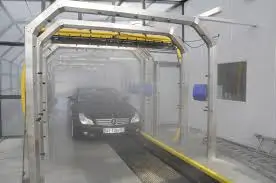
Quick and convenient; customers generally pay without leaving their vehicles. They offer various add-on services (e.g., tire cleaning, waxing). More extensive options for vehicle care.
It requires more space for the tunnel and equipment. Ahh most focusing thing is that it has higher initial setup costs due to complex machinery. Greater long-term profitability potential from higher customer volumes.
3- Touchless Car Wash Vs Friction
A touchless car wash is an automated vehicle cleaning method that uses high-pressure water jets and specialized detergents to clean a car without any physical contact with its surface. This approach minimizes the risk of scratches and damage to the vehicle’s paintwork.
- In which you utilize only water and cleaning agents, avoiding brushes or cloths.
- Uses powerful jets of water to dislodge dirt and grime
- Often uses less water and biodegradable detergents.
- Generally faster than traditional washing methods
- Reduces the risk of scratches and swirl marks on the vehicle’s surface
Friction Car Wash
A friction automobile wash, also known as a traditional car wash, uses physical contact through brushes, sponges, or cloths to scrub the vehicle’s surface clean. This method can provide a thorough cleaning but carries a risk of damaging the paint.
-
- Involves brushes or cloths that come into direct contact with the car.
-
- Can effectively remove stubborn dirt and grime through scrubbing action.
-
- Typically uses more water than touchless systems
-
- The process may take longer due to manual scrubbing and rinsing stages.
4- Self-Service Car Wash
Self-service car washing is a facility where customers wash their vehicles using equipment provided on-site. These facilities have high-pressure hoses, foam brushes, and cleaners for a customizable wash.
Washing a car generally takes 3 to 6 cars per hour per bay, depending on customer behavior and time spent.
The average price for a self-service wash car is approximately $5 per vehicle.
A representative from Grand Wash Auto noted that self-service car washes provide:
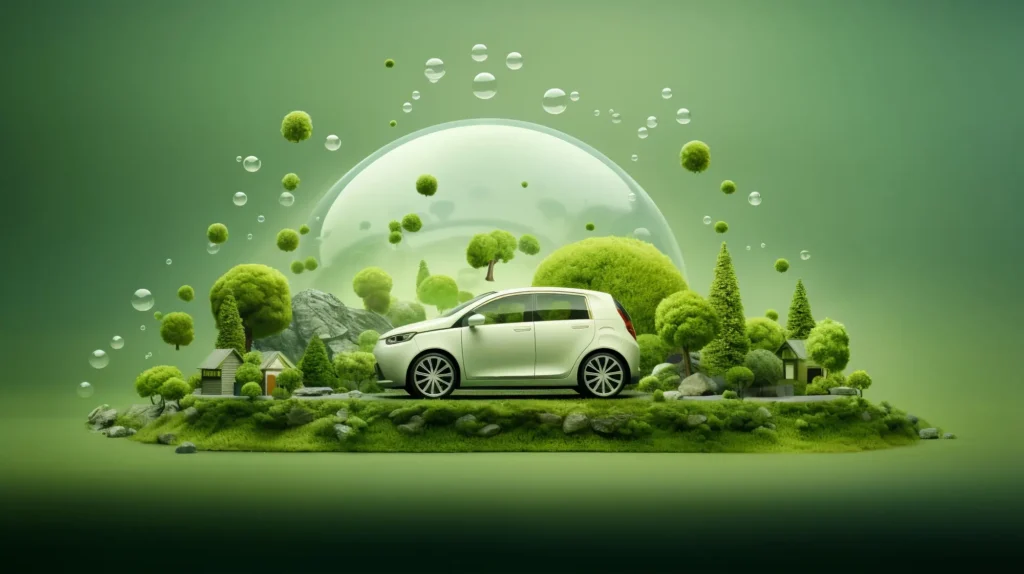
“A safe space for you to scrub your vehicle without leaving a mess in your personal haven,” highlighting their convenience and eco-friendliness compared to at-home washing”
Self-service car washes remain popular for their affordability and hands-on appeal, despite the rise of automatic options.
5- Waterless Car Wash
Waterless car wash is an innovative, eco-friendly cleaning method that allows vehicle owners to wash their cars without using water.
This technique utilizes specially formulated sprays that encapsulate dirt and grime, enabling users to clean the surface with a microfiber cloth.
This method not only conserves water but also offers convenience and efficiency, particularly for urban citizens or those facing water restrictions.
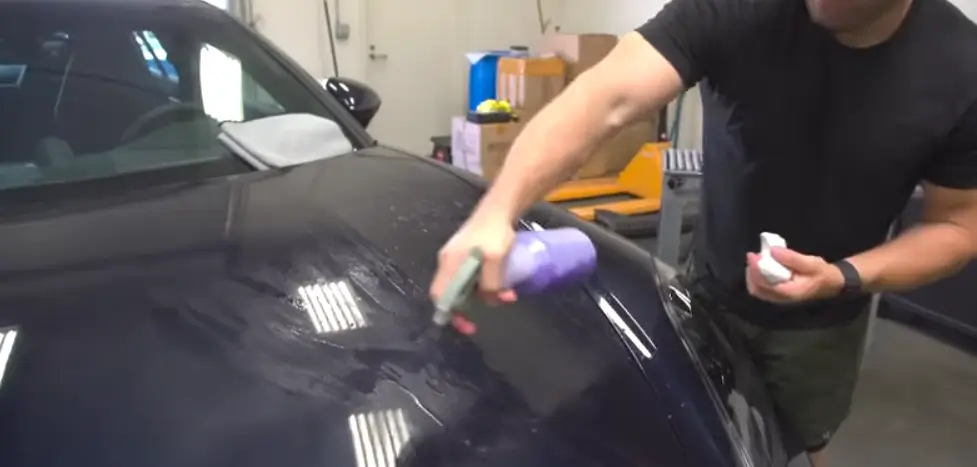
-
- Traditional car washes use up to 100 gallons of water, while waterless washes save hundreds of liters per vehicle.
-
- Waterless washing takes 30–60 minutes, unlike traditional methods which can take several hours.
-
- This washing method is eco-friendly as it prevents water runoff that can transport harmful detergents into waterways.
-
- They are perfect for light cleaning and maintenance, especially in water-restricted areas or during shortages.
-
- The products often contain lubricants that prevent paint scratches while removing dirt
-
- Many consumers value the convenience of washing their cars anywhere without a hose or bucket, making it ideal for quick touch-ups.
6- Steam Car Wash
Steam car washing is an innovative cleaning method that utilizes high-pressure steam to effectively clean both the exterior and interior of vehicles.
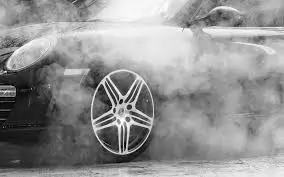
- This method uses less water and skips harsh chemicals, making it an eco-friendly alternative to traditional car washes.
- Traditional car washes use 40-80 gallons of water per wash, while steam car washes need just a few liters, cutting water use significantly.
- Steam washes operate at 100-120°C at the nozzle, but the surface temperature is around 50°C, ensuring vehicle paint safety.
- Steam cleaning takes longer but offers a deeper, non-damaging clean for longer-lasting results.
- Many steam cleaning services are mobile, allowing them to reach customers directly at their homes or workplaces, enhancing convenience.
- Steam dissolves dirt without chemicals, making it perfect for eco-conscious customers.
7- Mobile Car Wash/Detailing
Mobile car wash and detailing services offer a convenient way to maintain vehicle cleanliness, combining traditional cleaning methods with the flexibility of service at the customer’s location.
Mobile Car Washing
A quick service that cleans the exterior of a vehicle, typically completed in less than 30 minutes.
Mobile Car Detailing
A comprehensive service that involves deep cleaning and restoring both the interior and exterior of a vehicle, often taking several hours to complete.
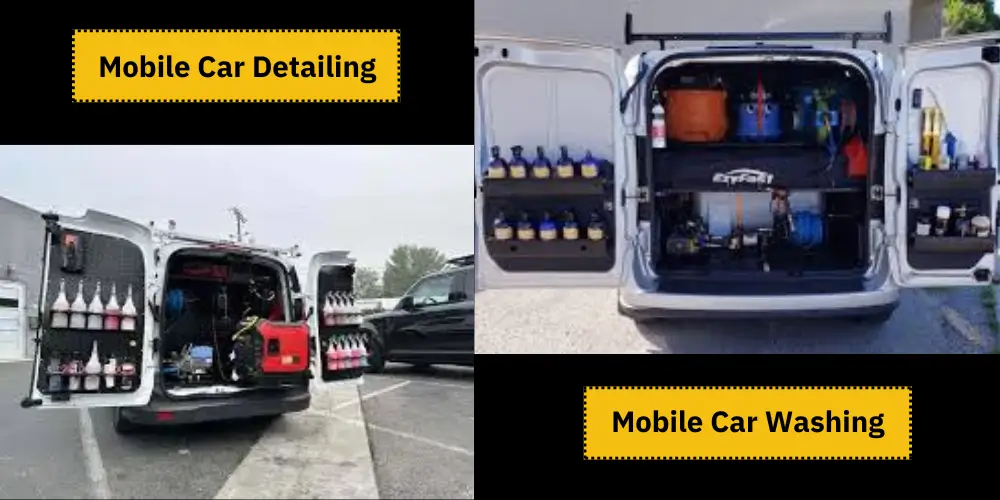
- Exterior wash with premium products
- Polishing & waxing for shine
- Tire and wheel care
- Streak-free window cleaning
- Headlight restoration
- Deep vacuuming
- Upholstery refresh
- Odor elimination
- Interior dusting and wipe-down
- Leather conditioning
- Carpet shampooing
The global car wash and detailing market was valued at approximately $29.6 billion in 2021, with projections indicating a growth rate of $38.53 billion of 4.5% from 2022 to 2030.
Average costs for mobile detailing services range from $120 for small cars to $400 for larger vehicles.
Note:
Mobile detailing is not just about cleaning; it’s about restoring your vehicle to a near-perfect condition.
The COVID-19 pandemic has accelerated the demand for mobile services as consumers prefer contactless options and convenience.
The trend of using eco-friendly cleaning products in mobile detailing is growing, attracting environmentally conscious consumers.
Mobile detailers are increasingly offering affordable packages that fit individual customer needs, moving away from one-size-fits-all solutions.
8- Full-Service Car Washes
A full-service car wash is an automotive care facility that provides comprehensive cleaning for both the exterior and interior of a vehicle.
This service typically includes an exterior hand wash, interior detailing, and additional services such as waxing, tire care, and engine cleaning.
The industry is expected to grow at a compound annual growth rate (CAGR) of about 3.5% from 2023 to 2030, driven by increasing consumer demand for vehicle maintenance services.
A typical full-service car wash takes about 30 minutes to an hour, depending on the services requested and the level of car wash detail involved.
Investing in regular full-service washes can save money in the long run by maintaining your vehicle’s resale value.
The rise of mobile detailing services allows customers to have their vehicles cleaned at home or work, enhancing convenience and accessibility.
9- Free Vacuum Car Washing
Free vacuum car washes are facilities that provide vacuuming services at no additional cost to customers.
This model is designed to improve customer satisfaction and attract more foot traffic, ultimately increasing overall sales.
This type of wash cars offering free vacuum services report up to a 20% increase in memberships.
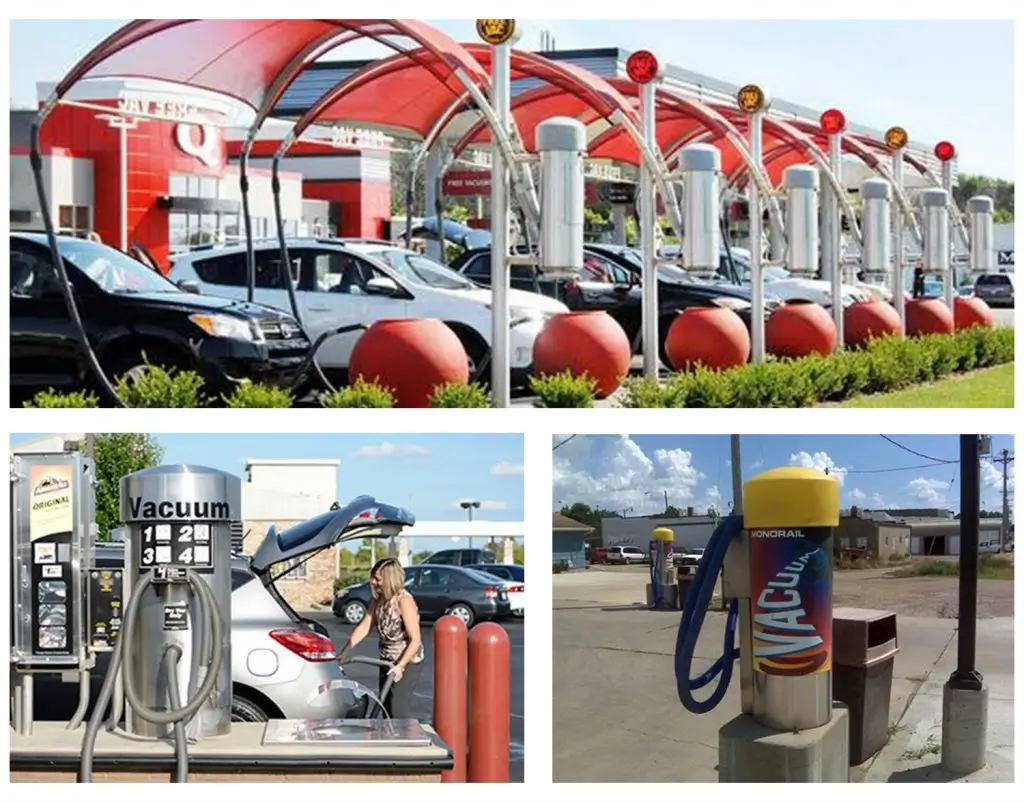
These stations can lead to higher usage rates, which may increase maintenance costs but also drive more customers to the car washing. It creates potential for upselling other services.
10- Haunted Car Washes
Haunted car washes are a novel concept that combines the everyday task of washing a vehicle with the excitement of a Halloween-themed experience.

Customers enjoy a spooky car wash experience with eerie decorations and actors as monsters or ghosts, combining entertainment with cleaning.
Haunted car washes have gained traction in recent years, especially during the Halloween season, as businesses look for unique ways to attract customers. They often attract large crowds and showcase the rise of experiential marketing in the car wash industry.
Haunted car washes can be found across the United States, with notable examples including the “Tunnel of Terror” in Anaheim, California, and various locations in Michigan like Tommy’s Express Car Wash.
These events not only enhance customer experience but also encourage social media sharing, which can significantly boost visibility and attract new patrons.
11- Gas Station Car Washes
A gas station car wash is a facility that uses specialized equipment to clean automobiles, often allowing customers to wash their cars while refueling.
These washes can be automatic, requiring minimal customer involvement, or manual, where customers wash their vehicles themselves using provided tools.
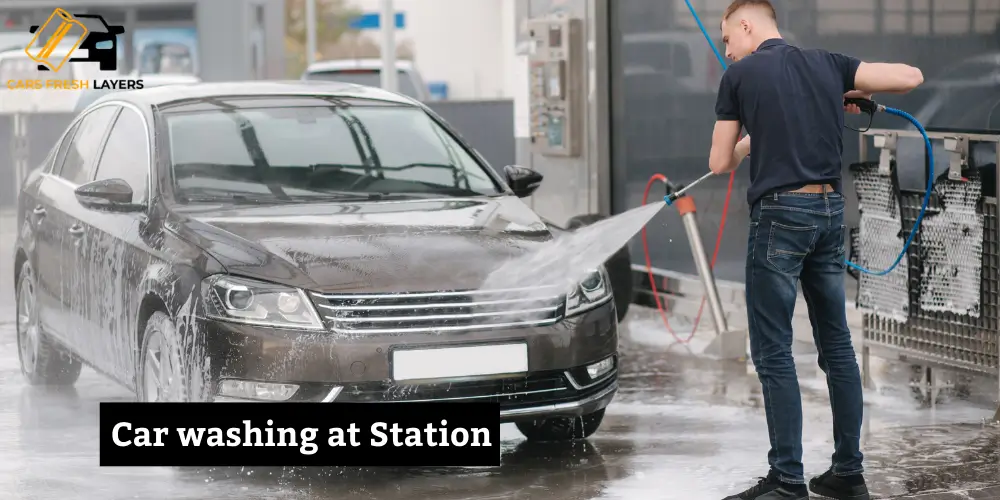
About 65% of U.S. car washes are at gas stations, and 66% of car owners use them 1-2 times a month.
A gas station with a car wash can generate up to $3.5 million annually, depending on location and service offerings.
Initial investments for setting up a gas station car wash can reach up to $2.75 million, covering equipment and facility setup.
Comparison of Car Wash Types
| Type | Key Features | Pros | Cons |
|---|---|---|---|
| Self-Service | DIY washing with manual tools | Low cost, flexible timing | Limited services |
| Full-Service | Attendants wash both interior and exterior | Comprehensive cleaning | Higher cost |
| In-Bay Automatic | Combination of express and full-service | Convenient, quick | Limited to one vehicle at a time |
| Tunnel | Conveyor system with multiple wash stages | High efficiency | Larger space requirement |
| Touchless | No physical contact during washing | Gentle on paint, eco-friendly | May not remove heavy dirt |
Conclusion:
The car wash industry is evolving with a focus on convenience, quality, and eco-friendliness. As more drivers choose professional services, understanding options and prioritizing transparent pricing helps ensure a better experience. A good car wash not only enhances a vehicle’s appearance but also boosts its longevity and resale value.
